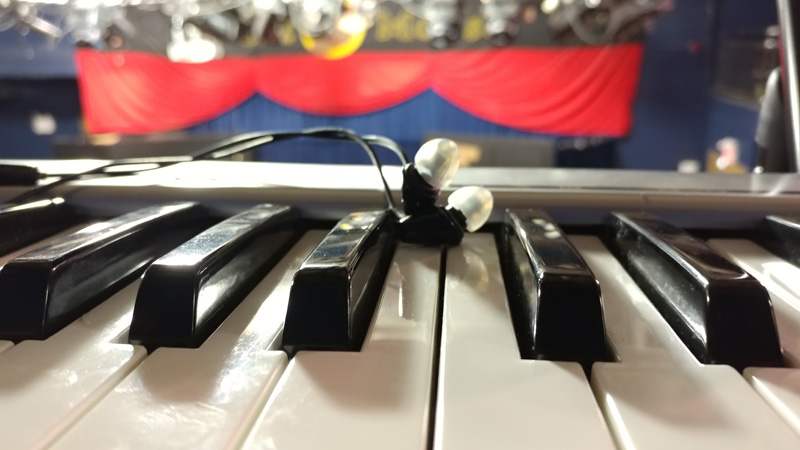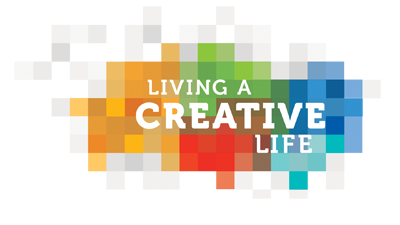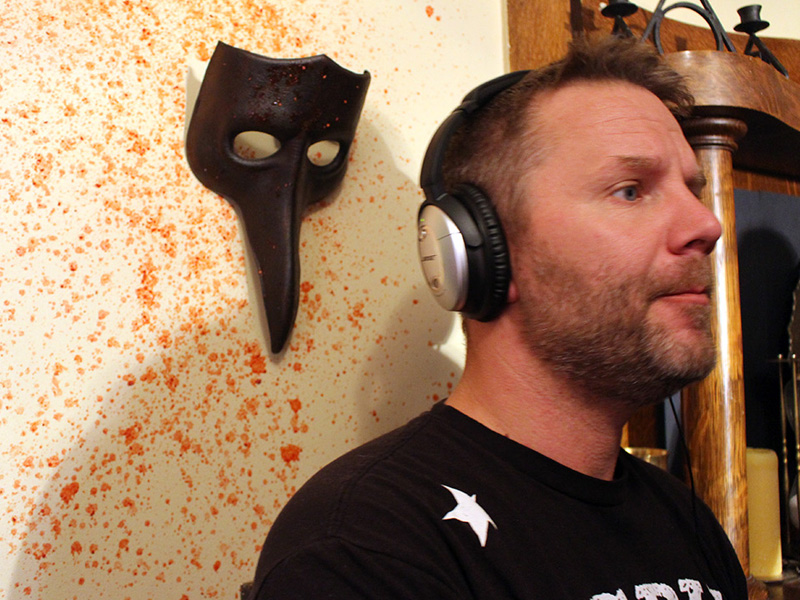Chad Blain
The sound of a creative life
In the late 1980s, Chad Blain was a keyboard player with almost as much interest in the industry part of music as he had in those familiar rock star dreams. At the University of Calgary, Blain studied things like world music and jazz history. He paid for school first by teaching music, then started working in various departments at a radio station.
Maybe it was nature—his father was an accountant. Maybe it was nurture—he was married—but when Blain’s former bandmates lit out for Vancouver, Blain stayed home and lit out for business school.
That proved to be a pragmatic decision, one night in the early 1990s, when Blain’s pager went off.
“I was at Scurfield Hall studying for my accounting exam,” he says, “and I remember getting the pager call. I’m dating myself—but yeah—off to the Foothills Hospital with my wife in labour, to help bring twins into the world.”
Suddenly, it was time to put the sound equipment in the closet, and get down to the serious lifelong business of paying the bills.
“Teaching music and working in radio were probably two of the funnest jobs I’ve ever had in my life,” Blain says, “but, you wake up and you have two kids—responsibility shifts, and you have to see what pays the bills in the long run.
“You adjust your plans.”
Like a lot of Calgarians, Blain found that for a guy with a certain amount of business sense, there was plenty of work to be had. For the next two and a half decades, he worked in the oilpatch, first in sales, and then later in corporate business development.
“It just snowballed from there,” Blain says. “I stayed with it. There was growth and more opportunities, so I just stuck with it—but in the back of your mind, you always just have that creative itch.”
Funny what finally comes along that allows you to scratch it. In the case of Blain—and tens of thousands of other Calgarians—it was the oil shock that erupted in mid-2014, resulting in massive layoffs throughout the city’s energy industry.
However, as the oil shock set in, Blain saw more than a shrinking job market; he saw an opportunity to dig the keyboards out of the closet and resume the life he’d more or less put on the shelf two and a half decades ago.
Even before he left the corporate world, Blain met with Marilyn Potts, his former drama teacher, where he put out the word that he was looking to get back into sound design and composition. Then, he landed a meeting with Dennis Cahill, who runs Loose Moose, the legendary Calgary improv comedy club that nurtured Bruce McCullough, the Fubar boys, Rebecca Northan, and Kim’s Convenience star Andrew Phung, among hundreds of others.
“He was the first one to open the door,” Blain said. “And said: it doesn’t pay anything, it’s not very glamourous, there’s long hours, long evenings, but if you want something creative to do that features sound design, we’ve got some things coming up.”

That led to one Loose Moose gig, then another, then another.
“I was still working full-time in oil and gas, and doing this on the side,” Blain says.
It took a few years before the oil shock hit home, but it did eventually catch up and one of the economic casualties of the recession was Blain.
When the layoff notice finally landed in his inbox, Blain decided to go all in on his other life.
“I looked forward,” he says. “They always say, what would you be doing if you weren’t working full time? And I was already doing that—I decided, I’m just going to throw everything I can into it for the next 12 months and see how things go.”
That started Blain on a “Year of Saying Yes” to every creative project, whether it was doing sound design and/or composition for theatre, or film, dance or animation—all the way to 100 projects.
Midway through his year of saying yes, Blain has already racked up close to 50 of them.
There was a kickoff gig at Lunchbox Theatre, working for artistic director Mark Bellamy.
There have been small, independent projects with almost no resources, and others, such as working with Val Planche on Theatre Calgary’s production of Skylight, which was produced inside the Engineered Air Theatre in Arts Commons.
“She brought me onboard for that,” he says, “for sound design, and she’s fantastic. Val is the most gracious person to work with.”
Then, there was a seminar in town one day, where Blain listened to Emmy-nominated film composer Alec Harrison talking about his journey and how a composer’s success is only 30% talent and 70% dealing with networking, business, marketing and administration.
Throughout his year of saying yes, Blain has discovered that each project brings with it a new set of challenges, opportunities, limitations, and personalities.
“One thing I was surprised about,” he says, “was, you go in to do sound and the composition but so much of what you do is related to the vision of the director and the collaboration of visual design and scenic design, lighting and projection. There’s so many facets to it, and you have to see what gels with them.”
In addition to theatre projects, there have been film projects, Storyhive submissions, video and animation projects—anything that requires a soundscape, Blain is available to work on. He’s getting paid now to live a creative life, but he acknowledges there’s an economic adjustment to following your bliss.
“When it comes to working in the arts,” he says, “getting little film projects for sound design, or little theatre projects here or there… anything in that realm involves a lot of digging around to see where that next opportunity is.”
Looking forward, Blain has two things on his list: one, to work with an orchestra, and two, to do sound design and composition on a feature film.
Why 100 projects?
“I was reading books about film composers,” he says, “about when they hit that hundred mark and they establish their sound or got their big break for that next project. I needed to shift my measure of success to completion of creative projects.”
That’s when the pragmatist Blain jumps into his own stream-of-consciousness.
“You know, I have a business degree,” he says, “so it kind of goes against all logic. And, not only do I have a business degree, but I was raised by an accountant. It doesn’t make economic sense to approach life like that, right?”
Then, Blain says yes to his very own creative life.
“But then I just sit back,” he says, “and say, let’s try and see where this goes if I hit a hundred projects—I won’t put myself in a box in any one direction.”
About The Storytelling Project
 On November 16, 2015, Calgary Arts Development hosted a working session with approximately 30 creative Calgarians from various walks of life. Many of the small working groups voiced the need to gather and share more stories of people living creative lives.
On November 16, 2015, Calgary Arts Development hosted a working session with approximately 30 creative Calgarians from various walks of life. Many of the small working groups voiced the need to gather and share more stories of people living creative lives.
That need has turned into The Storytelling Project.
The Storytelling Project raises awareness about Calgarians who, by living creative lives, are making Calgary a better city, effecting positive change and enriching others’ lives.
Have a story to share? Email us at news@calgaryartsdevelopment.com.
